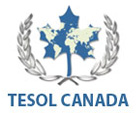












The rules of teaching have changed much and are constantly evolving in today’s globalized world. Teaching is no longer confined to a traditional classroom in one's hometown. Instead it is spreading its wings far and wide providing ample opportunities for teachers worldwide. Becoming an EFL/ESL teacher is a rewarding career option today with enough growth and attractive pay package along with a ticket to travel the world. English teacher abroad can be a great scope for those passionate travellers as EFL/ESL teachers are in great demand everywhere. Travelling the world and exploring new cultures is a part of the job that attracts hordes of people around the globe to take up teaching English as a foreign/second language.
TEFL and TESOL stands for Teaching English as a Foreign Language and Teaching English to the Speakers of Others Languages respectively. Both the terms involve teaching in native and non-native speaking countries to the speakers of other languages.
A TEFL certification is a major criterion and qualification required for teaching English jobs abroad. Teachers or aspiring teachers not only gain exposure in international teaching but also get paid to embark on an exciting adventure abroad. TESOL is an international program of training for teachers where they are acquainted with the latest language teaching techniques and approaches. TEFL provides a thorough learning experience and instils a sense of confidence among the trainees so that they are able to face culturally do not face any problem while teaching a bunch of budding English speakers.
Teaching ESL is the term used in English speaking nations where English is the primary language of communication and classrooms comprise of learners from various different backgrounds. Its apt example will be a Japanese student attending class in the USA. EFL teaching is the term used to teaching English to the learners where it is not the native language. For example in Japan, students learning English or studying other subjects in English will be termed as EFL learners.
The major difference between an ESL and EFL classroom lies in the fact that an ESL classroom will accommodate learners from a range of backgrounds who have different mother tongue whereas an EFL classroom will not be that varied in terms of the types of learners.
TEFL involves Teaching English to the speakers of those belonging to the non-native speaking countries whose primary language of communication is anything but English. Asian countries, European countries as well as the countries from Middle East are in high demand for well-trained EFL teachers, preferably with a TEFL certificate in order to cope up with rest of the world in terms of communication. TESL is the acronym for Teaching English as a Second Language to learners whose primary language is not English. Hence TESL teachers will be hugely benefitted if they are looking for a career in a native English speaking country. TESOL, on the other hand, is a sort of combination between TEFL and TESL and provides a broader learning and teaching prospect. It is specifically meant for those teachers willing to travel around the world and build a prosperous career in any country of their preference, be it native English speaking or non-native speaking country or even in their home country.
However, as the world is turning into a Global Village due to technological and financial innovation, the subtle dissimilarities among the various international English teaching courses are also fading and hence pursuing any of the above mentioned courses will hardly interfere with the candidates’ career prospects in any part around the world.
A TEFL course is open to anybody and any one. Be it a fresh graduates or anyone willing to modify their career can opt for an online or an in-class mode of TEFL course to gain specialized and training to teach in an international English language classroom. A TEFL certificate provides an extra edge to any resume by adding a globally recognized professional qualification. Aspiring teachers who have taken online TEFL course and earned a TEFL certification, the teachers embarking on a TEFL career needs to be proficient in teaching techniques and specifics of English. While living in a different country and teaching in an unfamiliar environment the teachers must prepare and present culturally appropriate lesson plans. They need to work on and develop effective techniques for foreign language instructions.
Teaching is an art and tutoring a group of foreigners is a rewarding feeling in itself. Apart from mastering the teaching skills, a TEFL teacher must possess a positive frame of mind and must show a lot of enthusiasm when it comes to teaching. The teacher needs to have oodles of energy which should be motivating enough for the learners and must build a congenial classroom environment in collaboration with the students. This would be helpful in better classroom management and will augment student cooperation and team work. Moulding one according to the need of the hour and putting a smile on the face always help irrespective of the country and the culture.
Discussed below are some of the top TEFL destinations and essential details for aspiring educators according to a recent study :
Thailand : For teaching English in Thailand, you must know the below mentioned essential details:
Education qualification : BA/BS degree along with a TEFL Certification
Types of Jobs : Private language schools, Public Schools, some tutoring
Types of Students : Business professionals, School children, Private students
Average monthly payment : 850 USD to 1,150 USD
Visa : Work Visa
Accommodation Benefits/Flight reimbursements : Provided by some schools
South Korea : For teaching English in South Korea, you must know the below mentioned essential details:
Educational qualification: Bachelor's degree or Diploma, along with a recognised TEFL certificate. (experienced teachers are preferred)
Types of Jobs: Institutes like Public Schools, International schools, language centres.
Types of Students: young Learners comprising of school children/University students or private students, Adult Business professionals.
Average monthly payment: $1,800 USD - 2,000 USD
Visa: Work Visa
Accommodation Benefits/Flight reimbursements: Usually given by the institute
Japan : For teaching English in Japan, you must know the below mentioned essential details:
Educational qualification: Bachelor's degree or Diploma, along with a recognised TEFL certificate.
Types of Jobs: Institutes like Public Schools, International schools, language centres.
Types of Students: Young Learners comprising of school children/University students or private students, Adult Business professionals.
Average monthly payment: 2,250 USD - 2,600 USD
Visa: Work Visa
Accommodation Benefits/Flight reimbursements: Usually given by the institute
China : For teaching English in China, you must know the below mentioned essential details:
Educational qualification: Bachelor's degree or Diploma, along with a recognised TEFL certificate.
Types of Jobs: Institutes like Public Schools, International schools, language centres or even corporate offices.
Types of Students: Young Learners comprising of school children/University students or private students, Adult Business professionals.
Average monthly payment: 1,150 USD - 2,600 USD
Visa: Work/Contractor Visa
Accommodation Benefits/Flight reimbursements: Usually given by the institute
Saudi Arabia : For teaching English in Saudi Arabia, you must know the below mentioned essential details :
Educational qualification: Bachelor's or Master’s degree, along with a recognised TEFL certificate. (experienced teachers preferred)
Types of Jobs: Institutes like Public Schools, International schools, language centres, private tutoring.
Types of Students: Young Learners comprising of school children/University students or private students, Adult Business professionals.
Average monthly payment: $ 1,500 - $3,000 USD
Visa: Work Visa (usually sponsored by schools)
Accommodation Benefits/Flight reimbursements: Usually given by the institute
United Arab Emirates (UAE) : For teaching English in UAE, you must know the below mentioned essential details :
Educational qualification: Bachelor's or Master's degree, along with a recognised TEFL certificate. (experienced teachers preferred)
Types of Jobs: Institutes like Public Schools, International schools, language centres, private tutoring.
Types of Students: Young Learners comprising of school children/University students or private students, Adult Business professionals.
Average monthly payment: $1,800 USD - 2,000 USD
Visa: Work Visa (usually sponsored by schools)
Accommodation Benefits/Flight reimbursements: Usually given by the institute
Poland : For teaching English in Poland, you must know the below mentioned essential details :
Educational qualification: Bachelor's degree/Diploma, along with a recognised TEFL certificate.
Types of Jobs: Institutes like Public Schools, International schools, language centres, summer camps.
Types of Students: Young Learners comprising of school children/University students or private students, Adult Business professionals.
Average monthly payment: 650 USD - 950 USD
Visa: Work Visa (maybe sponsored by schools)
Accommodation Benefits/Flight reimbursements: Depends on the institute
Chile : For teaching English in Chile, you must know the below mentioned essential details :
Educational qualification: Bachelor's degree/Diploma, along with a recognised TEFL certificate.
Types of Jobs: Institutes like Public Schools, International schools, language centres, private tutoring.
Types of Students: Young Learners comprising of school children/University students or private students, Adult Business professionals.
Average monthly payment: 900 USD - 1,200 USD
Visa: Work Visa (usually sponsored by schools)
Accommodation Benefits/Flight reimbursements: Depends on the institute
Croatia : For teaching English in Croatia, you must know the below mentioned essential details :
Educational qualification: Bachelor's or Master’s Degree, along with a recognised TEFL certificate.
Types of Jobs: Institutes like Public Schools, International schools, language centres, private tutoring.
Types of Students: Young Learners comprising of school children/University students or private students, Adult Business professionals.
Average monthly payment: 800 USD and above (for language centres), 2000 USD and above (for international schools)
Visa: Student Visa (assistance provided by schools)
Accommodation Benefits/Flight reimbursements: Depends on the institute
HOW TO
REACH US